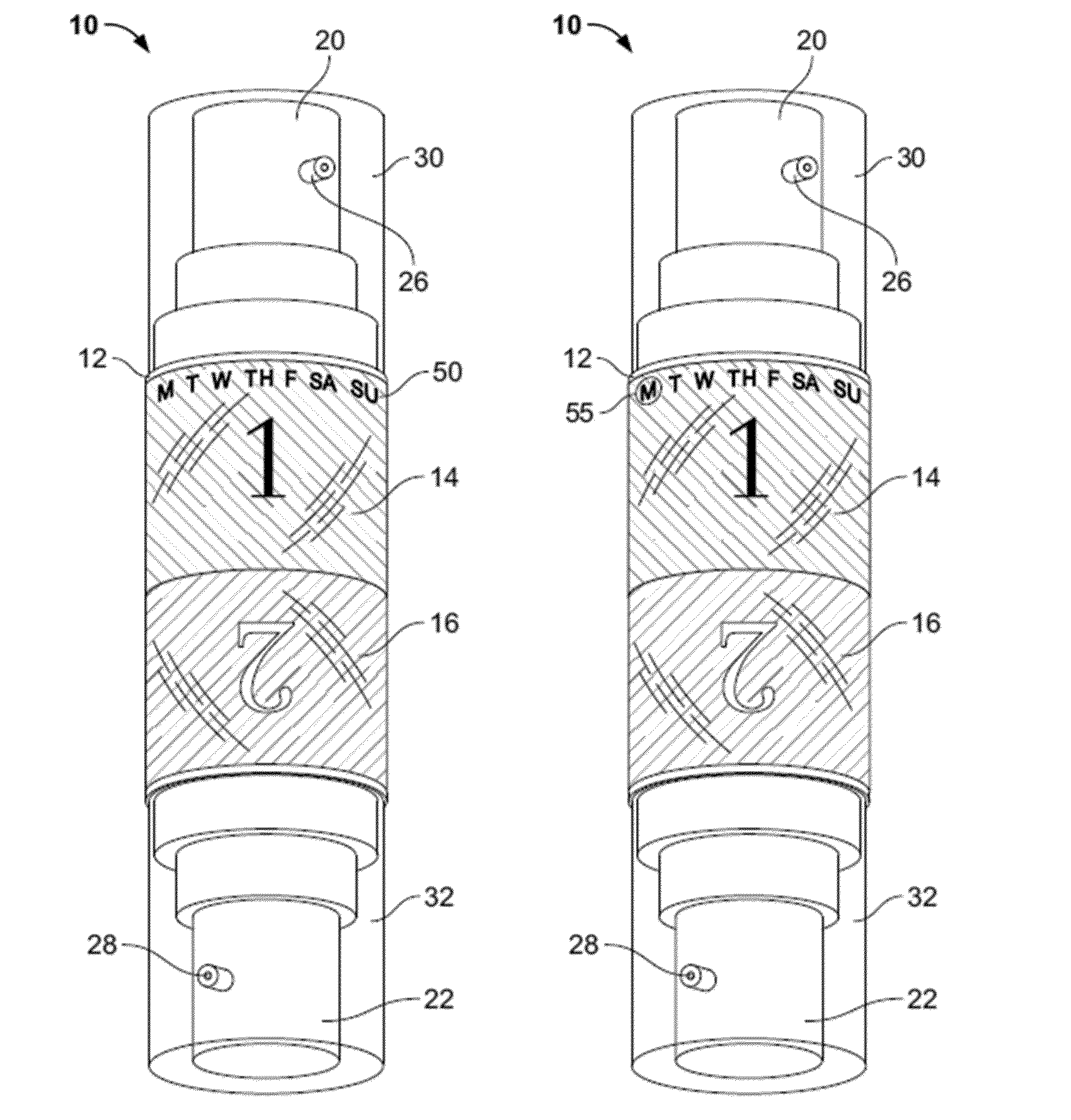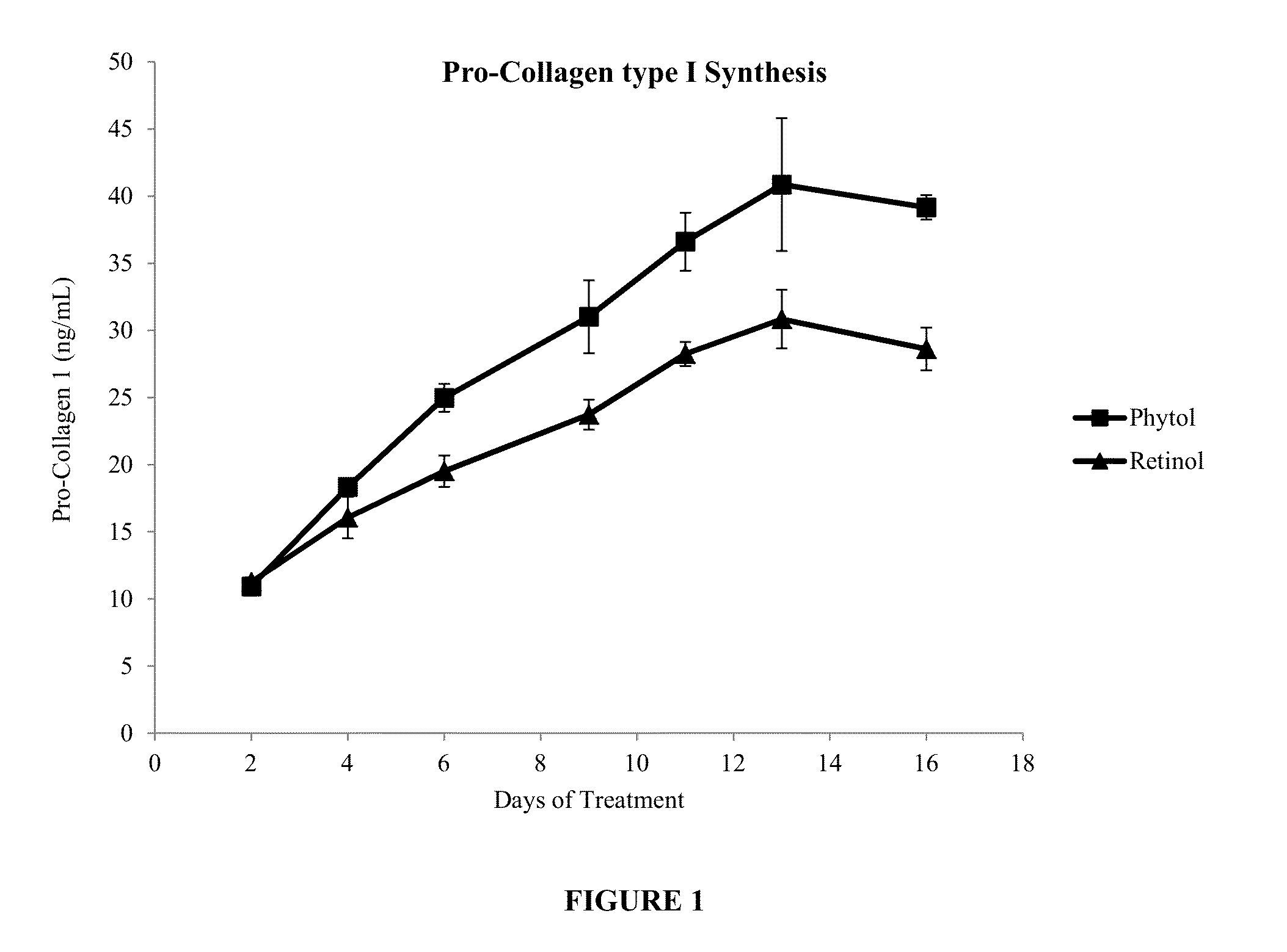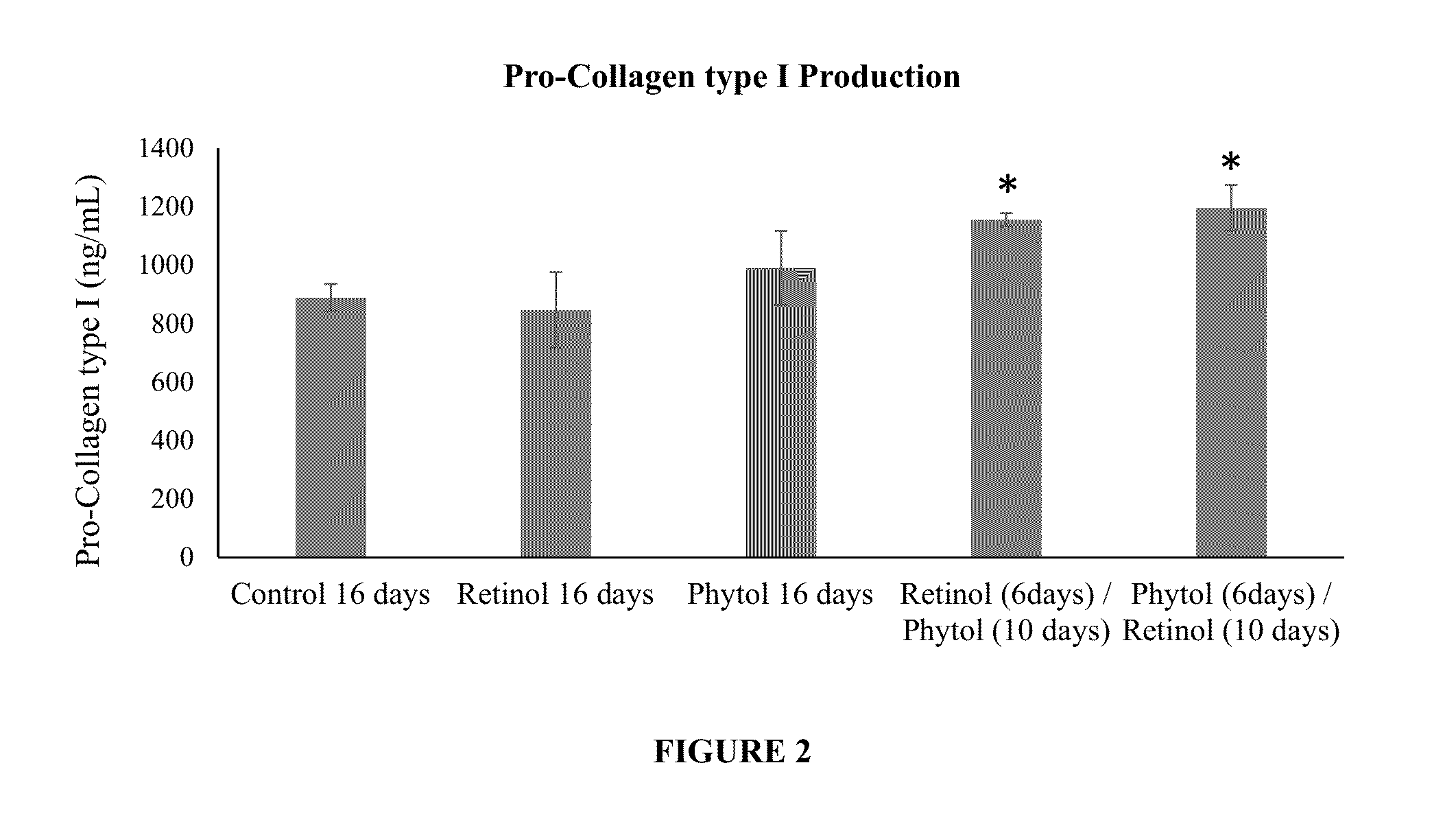Methods for treating skin
a skin and retinol technology, applied in the field of skin treatment, can solve the problems of plateauing of the benefits of retinol therapy, and achieve the effects of reducing unwanted pigmentation and hyperipmentation, thinning skin, and reducing the appearance of dermatological signs
- Summary
- Abstract
- Description
- Claims
- Application Information
AI Technical Summary
Benefits of technology
Problems solved by technology
Method used
Image
Examples
example 1
[0184]Human dermal fibroblast cells were grown in a 6-well plate in DMEM media (available from CORNING, N.Y.) supplemented with 10% Fetal Bovine Serum (FBS) and L-glutamine (1.5×105 cells / plate) overnight. After reaching about 75% confluence, cells were transferred into DMEM media without FBS and incubated for 4-6 hours. Next, the cells were treated with either 0.0001% phytol or 1 μM retinol. Treatment with either phytol alone, or retinol alone was performed in DMEM media without FBS for 16 days. For sequential treatments, the cells were treated with 0.0001% phytol for 6 days followed by 1 μM retinol for 10 days, or with 1 μM retinol for 6 days, followed by 0.0001% phytol for 10 days. Every other day, media were collected and cells were re-treated with phytol or retinol in the same fashion. After treatment, the amount of collagen secreted into the culture media was determined using the HTRF human pro-collagen I kit (available from CISBIO, Inc).
[0185]The results are shown in FIGS. 1-...
example 2
The Clinical Efficacy of a Rotational Regimen was Demonstrated as Follows
[0186]Subjects (age range: 24-59) having mild-to-moderate fine lines and wrinkles were recruited for the study. The subjects were allocated to two groups: Cell 1 received a treatment regimen comprising topical application of an α-hydroxy acid (AHA) formulation once daily for one week followed by topical application of a retinol formulation once daily to the same area of skin on the face for one week. These treatments were continued in rotating fashion for a total of 12 weeks. The subjects in Cell 2 received only the topical retinol treatment once daily for the entire 12 weeks. All subjects underwent a two week pre-conditioning during which they received no AHA or retinol therapy. All subjects applied a sunscreen to the face daily during the conditioning period and throughout the 12 week trial.
[0187]The α-hydroxy acid (AHA), e.g., glycolic acid, and Retinol formulations that were used in this study are provided ...
examples 3-10
Hyaluronic Acid (HA) Assessment in Human Dermal Fibroblasts
[0191]A series of experiments was conducted to assess the effects of the treatment regimens of active ingredients on the production of hyaluronic acid (HA) in human dermal fibroblast (HDF) cells. The following five treatment regimens were assessed: (1) active ingredient A, alone; (2) active ingredient B, alone; (3) the combination of active ingredients A+B; (4) active ingredient A, alone, followed by active ingredient B, alone (“A / B”); and (5) active ingredient B, alone, followed by active ingredient A, alone (“B / A”). For treatment regimens (1), (2), and (3), the active ingredients were administered to cells for 10 consecutive days. For treatment regimens (4) and (5) (sequential regimens), the cells were treated with active ingredient A or active ingredient B for 5 days, followed by active ingredient B or active ingredient A for 5 days, respectively.
[0192]Human dermal fibroblast cells were grown in 96-well plates in DMEM med...
PUM
| Property | Measurement | Unit |
|---|---|---|
| Fraction | aaaaa | aaaaa |
| Fraction | aaaaa | aaaaa |
| Time | aaaaa | aaaaa |
Abstract
Description
Claims
Application Information
 Login to View More
Login to View More - R&D
- Intellectual Property
- Life Sciences
- Materials
- Tech Scout
- Unparalleled Data Quality
- Higher Quality Content
- 60% Fewer Hallucinations
Browse by: Latest US Patents, China's latest patents, Technical Efficacy Thesaurus, Application Domain, Technology Topic, Popular Technical Reports.
© 2025 PatSnap. All rights reserved.Legal|Privacy policy|Modern Slavery Act Transparency Statement|Sitemap|About US| Contact US: help@patsnap.com



